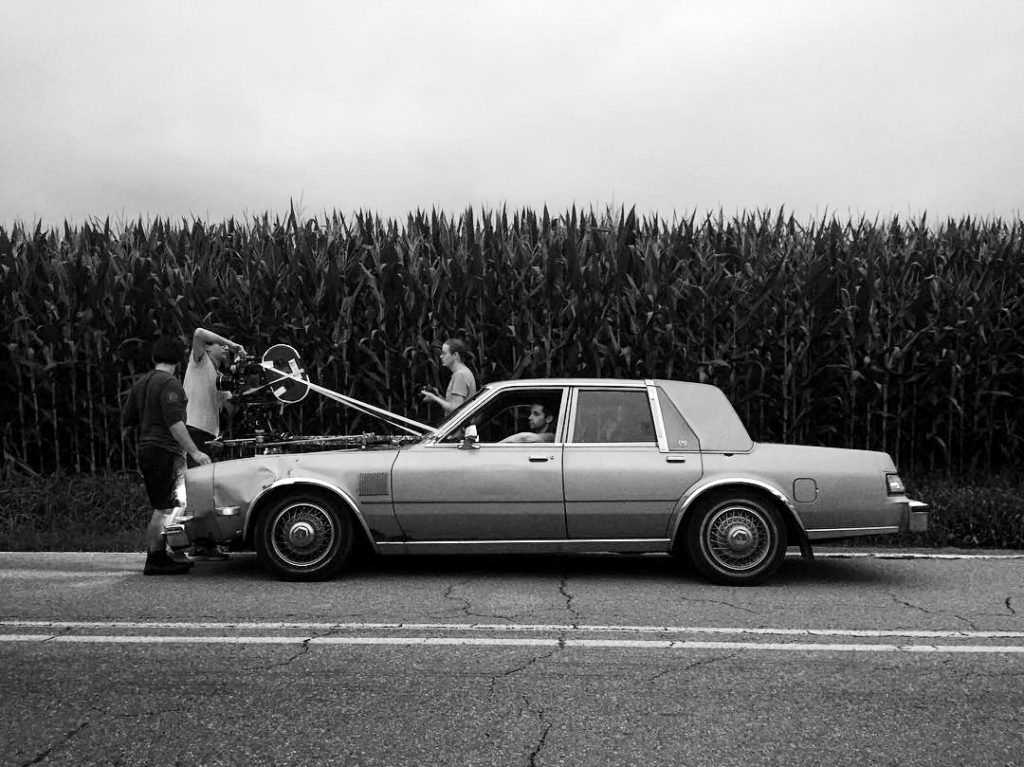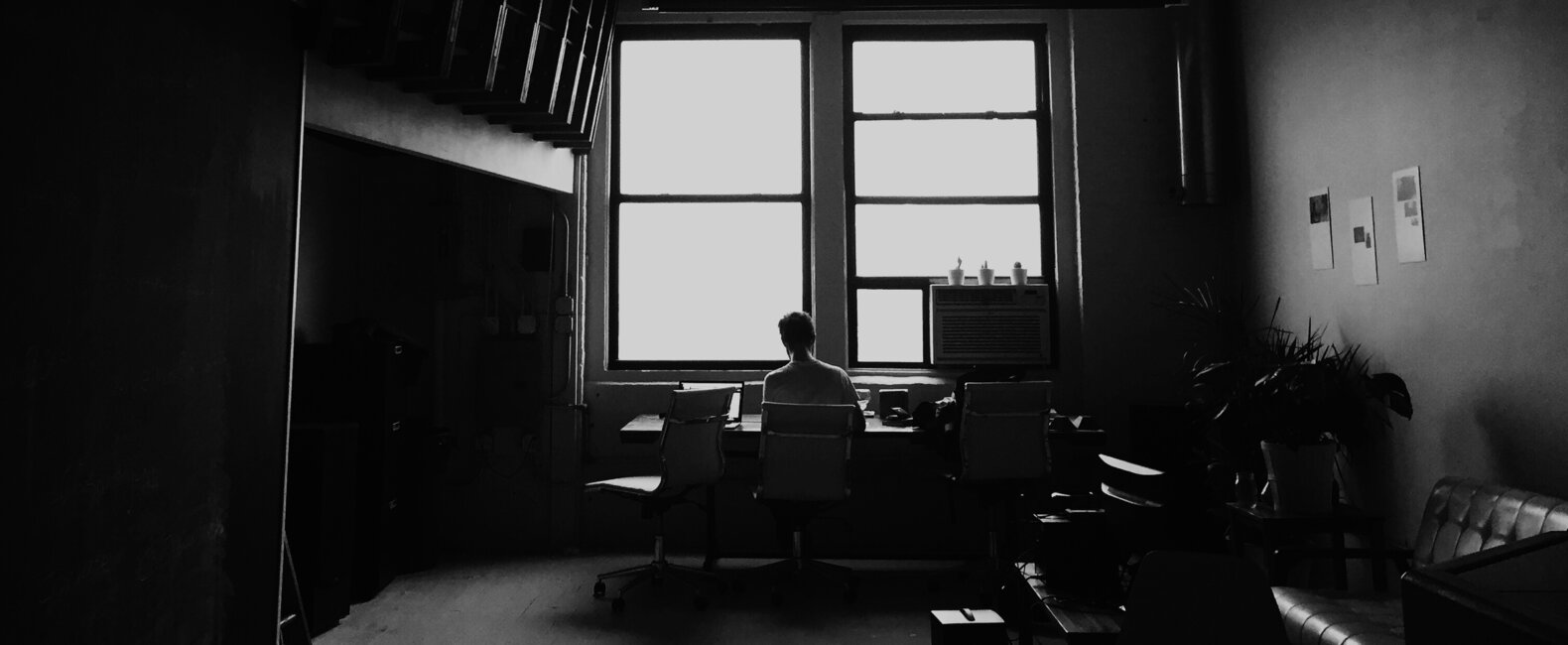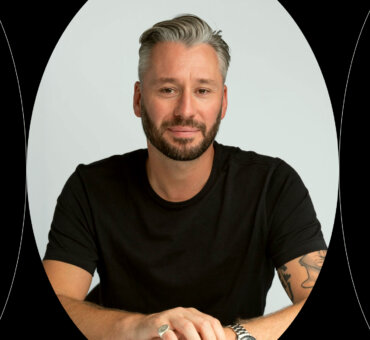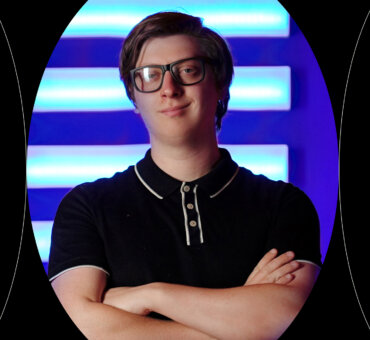It wasn’t easy to find someone to interview about failure. It’s not just that people don’t like talking about their failures; they can’t remember them. Most failures are quickly forgotten — maybe as a form of mental self-defense. Everyone experiences failure; but when it comes to recalling specific defeats, people draw a blank. Which is why, over time, failure feels less like an acute pain and more like a chronic discomfort. It’s something we all must learn to live with. The question is: how can we live with it best?
“It’s all about your environment and the people you surround yourself with,” Charles Frank of Voyager Creative told us. “You have to support one another. Failure is a really hard thing to deal with alone.”
It’s appropriate, then, that our interview about failure turned into a group interview with the team at Voyager: a young, creatively renowned film studio in the heart of Brooklyn. A studio, we learned, born from a failure.
Here’s Voyager.

Charles Frank: I’ve had trouble thinking of a specific instance where a failure really knocked me down and changed things forever. I think part of the reason for that is I’ve always been terrified of failure. I’ve done everything I can possibly do to avoid it, and that’s made me play it safe a lot of times. Looking back, more often than not I’ve taken the route that’s less risky in order to avoid having to face some terrible rejection.
Henry Busby: Charles and I have had different experiences in this area. I have a pretty impressive list of rejections. But I also have a hard time thinking of one specific instance. For me, rejection blurs into one big thing; and the question becomes: how do you deal with the whole thing — with the series of rejections — rather than just one particularly bad rejection? Most people know rejection is a part of the creative life. They’re prepared for one rejection, two rejections, five rejections. But the truly important thing is your resiliency on the hundredth rejection.
Charles: The more you protect yourself from failing, the less resilient you are, which I believe is a bad thing.
Henry: One thing worth noting is that we’re fairly young, so we’re lucky to be at the point in our career when we’re legitimately being rejected. For a long time, we were trying to get someone to just acknowledge our presence. We’re actually pretty glad to be getting rejections now and learning as we go.

Musicbed: What did some of those early rejections feel like?
Andrew Hutcheson: Early on we had the opportunity to pitch on a local, low-budget commercial. It was the most straightforward thing you could think of. Just product on a backdrop. The previous ads they’d done had really cheesy lighting and were shot on bad cameras. So we felt like we could transform this thing, turn it into a cinematic masterpiece. We thought there was no question we’d win the job because we were young, talented filmmakers. So we sent in our bid and got a very polite call from the agency basically saying, “Of course you’re not getting this job. How did you think you were going to get this job?” It was such an eye-opener, and it forced us to evaluate the types of jobs we should go after. Because the fact was we didn’t want to compromise and make something that looked like everything else. So really, a rejection was our defining moment. I called Charles after that and we started what would become this production company.
Charles: The tricky thing is that the first project we did once we really got started, a Hasbro broadcast spot, ended up working really well. It was broadcast nationally and had some success. And once we’d had that success, we wanted to replicate it. We wanted to make that same commercial again and again, rather than face the potential rejection of trying something different. So that success ended up breeding this kind of formulaic approach, which eventually made us unhappy again.
Henry: In some ways, every success or failure will call into question your faith in what you’re doing. And the stakes keep going up.
Charles: Success can be just as confusing as rejection. You wonder if you’re only successful because you’re being safe. Would a rejection, then, be better than a success? It gets confusing.
It’s almost like early success can be more toxic to a career than rejection.
Andrew: It definitely can be if you don’t frame it right. With the Hasbro thing, a year later we were way more successful than we’d ever been, but we were nowhere near as happy with the work we were making. Success creates a ton of pressure on what you do next. It’s easy to forget that the reason you became successful is because you took risks and put yourself out there. You had that devil-may-care attitude, and you did the thing you believed in. It gets harder and harder to hold on to that the more success you have along the way.
Are there lessons you can learn from rejection and failure? Or do you just make what you want to make, and if somebody likes it, great.
Andrew: It sounds really romantic to say the latter, but I don’t think it’s true. A lot of what it comes down to is learning to accept the things that are out of your control. What is in your control is learning how to make a better bid. Learning why you didn’t get a job. Could you have done something differently, or did it just come down to taste and circumstances? It’s like The Serenity Prayer, “Grant me the serenity to accept the things I cannot change; courage to change the things I can; and wisdom to know the difference.” There might have been ways to win the job, but would you want to win it that way?
Henry: There’s a broad way of looking at rejection, and a personal way. Let’s say you spent two months working on a treatment or a bid for a job, but you didn’t get it. You lost. Instead of looking at it as a personal thing — someone didn’t give you a chance — you can see it as someone else finally got their card pulled. They’re now getting a chance to step up to the plate. Feeling personally bitter about a lost job is the wrong way to see it.

John Berryman recommended that artists cultivate an extreme indifference to praise and to blame. Do you agree?
Andrew: That sounds awesome to me in theory, but I like riding the extremes. I’ll take the lows and the anguish of failure for the highs of achieving things. I think a lot of times you need to ride that wave. The paradox is that in your greatest moment of happiness, you have to accept that you will suffer again.
Charles: Filmmaking is incredibly emotional. There are going to be very high highs and very low lows. I don’t think there’s any other way.
Andrew: And the thing is, you have to care enough about the project to want to make it in the first place. And if you care enough about it to make it, then you should care enough for it to hurt if you lose it.
Henry: The day I lose a job and I’m not upset by it is the day I should take another look at what I’m doing as a director.
Andrew: I also think it’s important to remember that every piece of work you put out doesn’t have to be better than the last. The important thing is that you believe in what you’re doing.
Henry: If you’re only willing to make something if you can make it better than the last time, then your films are going to be few and far between.

Do you guys have coping strategies for failure?
Charles: It’s all about your environment and the people you surround yourself with. The people you work with are the most important thing. You have to support one another. Failure is a really hard thing to deal with alone. I feel fortunate that I’ve always been surrounded by very supportive people – as corny as that sounds. It’s so valuable.
Henry: You have to have some renewable source of energy. Maybe it’s just a broad love for storytelling and filmmaking. You need something to return to when you’re exhausted and discouraged. You have to be careful not to fall into poisonous patterns. If every time you lose a job your coping mechanism is snark or jealousy or dismissiveness, that’s going to corrode you over time. It’s not sustainable. It’s not a renewable source of energy.
Andrew: The biggest thing for me is to keep in mind that when we face rejection, the sun will always rise tomorrow. There will be another brief. There will be another pitch. There’s that Stanley Kubrick quote about how the general state of the universe is indifference. There’s just darkness in the world and you have to make your own light. You have to believe in what you’re doing and the stories you want to tell and the vision you have. There will be another avenue for it down the road. One thing I like to do, though, when there’s been a rough patch with a couple of rejections at once, is go back and watch the really silly action movies we made in high school. It reminds me why I wanted to make films, and why there was nothing else I wanted to do with my life.
Charles: It’s so easy to get really serious about all of this, but the truth is we all got into filmmaking for such stupid reasons.
Henry: I was an amateur stunt man.
Andrew: It’s good to splash some cold water on your face and remind yourself, Hey, man, you’ll survive. The world will go on. We’re all just playing make-believe here.





















































































